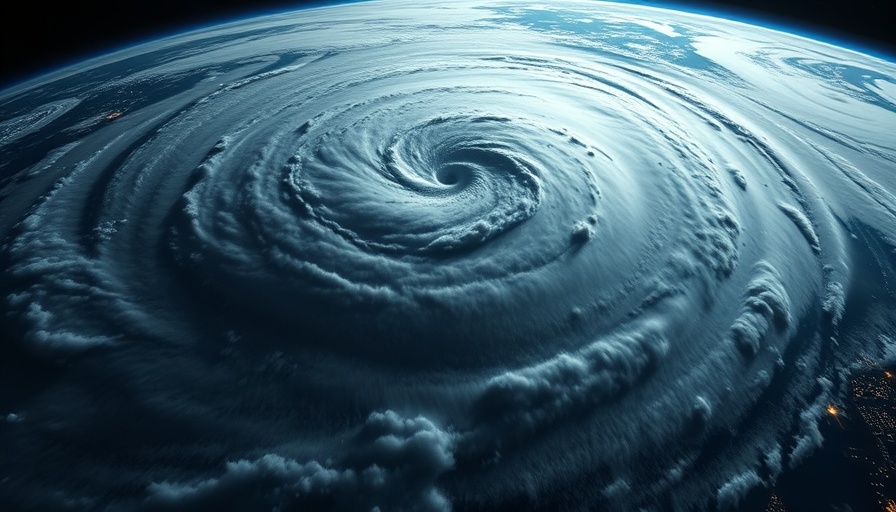
NOAA Predicts a Chaotic Hurricane Season Ahead
The National Oceanic and Atmospheric Administration (NOAA) has forecast that the 2025 Atlantic hurricane season, spanning from June 1 to November 30, will likely be above normal. The organization estimates a 60 percent chance of this season producing between 13 to 19 named storms, with the possibility that 6 to 10 could intensify into hurricanes.
Impact on Coastal and Inland Communities
As we prepare for an active hurricane season, it's crucial to understand how these storms can affect not just coastal regions but also areas further inland. The impact of hurricanes often includes significant rainfall leading to destructive flooding, a reality underscored by Hurricanes Helene and Debby last year. As Ken Graham, the director of NOAA's National Weather Service, emphasizes, "This outlook is a call to action: be prepared." For those involved in the boutique hospitality industry, these forecasts carry enormous implications. Owners of smaller hotels and eco-lodges should ensure that their emergency plans are robust and comprehensive to protect both their guests and their businesses.
Understanding the Drivers of Storm Activity
NOAA cites several environmental factors contributing to the anticipated uptick in storm activity. Elevated ocean temperatures offer more energy for storms, while weakened trade winds can facilitate their growth. Additionally, meteorological conditions linked to the West African Monsoon could create more tropical waves, serving as potential catalysts for future hurricanes. This blending of atmospheric conditions indicates a uniquely volatile season ahead.
Counterarguments: Is the Preparation Adequate?
Despite NOAA's proactive stance on hurricane forecasts, some researchers express concern about the agency's current capability to respond effectively. Changes in staffing levels, particularly stemming from recent layoffs and retirements, have diminished NOAA's workforce from around 12,000 to 10,000. According to Rick Spinrad, the former administrator of NOAA, this represents a significant depletion, with some divisions facing staff shortages of up to 30 percent. This raises questions about preparedness when the stakes resonate deeply with communities dependent on accurate weather forecasting for their safety.
The Urgency of Climate Awareness in Hospitality
Given the forecasted hurricane activity, and potential for increased disruptions, hospitality professionals should expand their understanding of climate change's ripple effects. Ideas like chaos gardening and sustainable practices should be at the forefront of discussions within boutique hospitality circles. For instance, integrating sustainable measures, such as using leather alternatives and minimizing microplastics, helps build resilience within businesses. By fostering an eco-conscious approach, the hospitality industry not only contributes to environmental sustainability but also positions itself as a proactive player in addressing the wider climate crisis.
Preparing for the Storm: Practical Insights
For boutique hotel owners, preparation starts now. Themotional security of guests is paramount, and this can begin with clear communication about safety protocols. Ensure facilities are stocked with emergency supplies and establish evacuation plans that prioritize guest safety. Consider educating staff on climate awareness and its implications for your operations. Creating an emergency response team can lead to a cohesive and strategic approach when a storm threatens.
Act Before the Storm Strikes
As the 2025 hurricane season approaches, the complexities of preparation cannot be overstated. Engaging with local communities and nature reserves to promote climate awareness is not merely beneficial but essential. In this light, boutique hospitality professionals wield the potential to not just adapt but to lead in sustainable tourism, turning challenges into opportunities for growth.
As we move forward into this uncertain season, let's remain vigilant and participate actively in our communities. This information isn’t just data—it’s a call to action for all of us. Prepare, inform others, and advocate for practices that promote resilience against the storms ahead.
 Add Row
Add Row  Add
Add 




 Add Row
Add Row  Add
Add 

Write A Comment